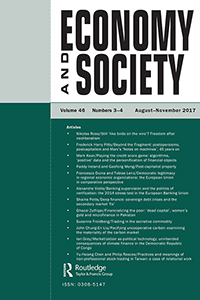By Duina, Francesco, and Tobias Lenz

Regional organizations have been widely criticized for lacking democratic legitimacy but these criticisms have been rather ad hoc, concerned with single case studies, and reliant on unclear standards or metrics. Are all organizations similarly deficient? And how does the European Union (EU), the target par excellence of the criticisms, fare in comparative perspective? In this paper, we take a first step towards answering these questions by leveraging the rich debate on the EU to identify several institutional dimensions of democratic legitimacy and operationalizing them for comparative analysis. We then investigate the most important regional economic organizations (REOs) in the world. Our findings are three-fold: (1) there is systematic variation across REOs, with a group doing rather well, one mixed, and one poorly; (2) procedural dimensions fare better than those related to representation or local self-determination; (3) no organization exhibits or lacks legitimacy in all dimensions. These results qualify the perception that democratic legitimacy deficits are indiscriminately pervasive and indicate that the EU belongs to the most democratically legitimate group.
Published:
2017